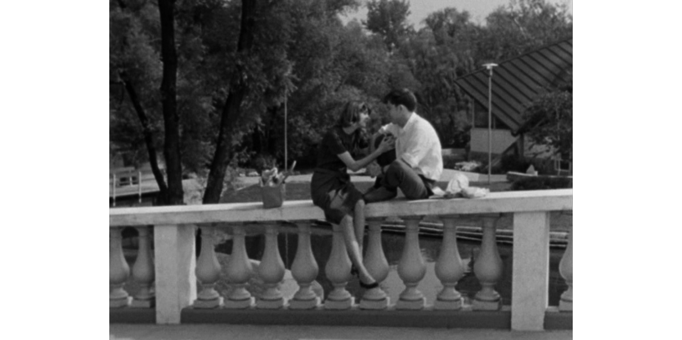It’s difficult enough to get a single film developed, filmed and released here above the 49th Parallel and even tougher to get that film noticed. It’s even more astounding when a sequel to that film off the ground.
Yes, sequels are a rare creature in the landscape of Canadian cinema. So rare that most franchises end after their second entry, unlike their American cousins which can stretch through infinite instalments including remakes, spin-offs, etc. In this series, I’d like to examine a few of the Canadian films lucky enough to merit a second run at bat and see how the call of the first film was answered by the second.
To my knowledge, 1964’s Nobody Waved Goodbye is the first piece of Cancon to merit a follow-up (although it would take twenty years). It was initially born of the National Film Board of Canada’s rich documentary legacy, planned as a half-hour TV docudrama on probation officers and their clients to be titled First Offence. As development carried on, director Don Owens was inspired to spin this concept into a feature-length coming-of-age story and with the support of NFB executive Tom Daly received a budget increase and was able to proceed.
The resulting story concerns 18-year-old Peter Marks. Being among the first baby boomers to come of age, Peter is frustrated with the clean-cut, nine-to-five lifestyles that make up his Toronto suburb. Rejecting his parent’s wishes that he go to law school, Peter longs to save up and move far, far away to start a new life with his steady girlfriend Julie on their own terms. These best laid plans begin to fall apart when Peter is arrested and put on probation for taking his father’s company car for a joy ride.
Having failed to pass his final high school exams and constantly running afoul of his parents for his seeming lack of direction, Peter decides to strike out on his own in urban Toronto. He quickly learns the folly of making an honest living with few skills and no High School diploma causing him to slowly drift into petty theft. This soon leaves the young man at a crossroads which will ultimately determine the course of his just-begun adult life.
Nobody Waved Goodbye is a fascinating time capsule of the period when the very first baby boomers were coming of age. Society, culture and authority were all being questioned and the status quo would soon spiral into the counter-culture movement before settling into the “Me” generation of the 1970s. Peter Kastner retains his given name for the role of Peter Marks and truly shines here, playing it with all the charm and gusto of a young Richard Dreyfuss. Youth parts of the time were often poorly realized onscreen, but this film’s improvised direction lends a naturalness and believability to the performances that truly transcend the projects low-budget trappings. Kastner easily carries the film with the other actors providing decent if not occasionally stilted support. A young John Vernon (of later Dirty Harry and Animal House fame) also stands out, lending a cool menace to the role of Peter’s unscrupulous parking lot supervisor.
The film was shot with a small five-person crew in a run-and-gun style dovetailing off the “Direct Cinema” movement pioneered at the NFB by the likes of Michel Brault and Jean Rouch. The style sought to depict more “truthfulness” in cinema than the traditionally scripted and studio-bound dramas of the time would allow. The results speak for themselves as we are immediately thrust into early 1960s Toronto, beautifully photographed on Black & White 16mm. These characters act and speak more like regular people which may be common in contemporary times with ubiquitous cameras and video postings, but is quite unique to this time period. The film moves swiftly at a mere 80 minutes, but one can’t help but notice some frayed ends of the improvisational approach with several plot points (Peter’s probation officer, diner girlfriend) that ultimately go nowhere.
Don Owen’s debut feature was a milestone in Canadian cinema as it not only broke the endless documentary cycle our filmmakers were stuck in, but gained notice all across the country and around the world, playing the U.S, Israel,and Czechoslovakia. It would be the first of many Canadian pictures to depict frustrated young men trying to find their place in the world (a theme repeated in such Cancon classics as Goin’ Down the Road and Apprenticeship of Duddy Kravitz) and a key fixture in the emerging “Direct Cinema” movement of the 60s. Its a fine film that shows today’s generation that their grandparents were just as messed up as they were once upon a time.
8/10
Next week: Unfinished Business

